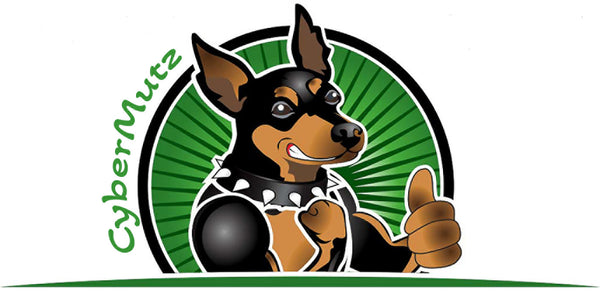
🦠 Probiotics for Dogs: Natural Gut Health Boosters
Share
🦠 Probiotics for Dogs: Natural Gut Health Boosters
Meta Description: Curious about probiotics for dogs? Learn how they support digestion, immunity, and overall wellness—plus how to choose the right type for your pup.
What Are Probiotics and Why Do Dogs Need Them?
Probiotics are live, beneficial bacteria that help balance your dog’s gut microbiome. Just like in humans, a healthy gut plays a big role in your dog’s:
-
Digestion 🐾
-
Immune system 💪
-
Mood and behavior 😌
-
Skin and coat health ✨
When the gut is out of balance—whether due to antibiotics, illness, stress, or diet—your dog can experience everything from diarrhea and gas to skin issues or low energy. Probiotics can help restore that balance naturally.
Signs Your Dog Might Benefit from Probiotics
Your dog might be a good candidate for probiotics if they have:
-
Chronic gas or bloating
-
Loose stools or diarrhea
-
Frequent yeast infections
-
Itchy skin or hot spots
-
Bad breath or poor digestion
-
A history of antibiotic use
-
High-stress situations like boarding or travel
Types of Probiotics for Dogs
Not all probiotics are the same. Here are a few common types:
-
Lactobacillus acidophilus – Helps break down food and absorb nutrients.
-
Bifidobacterium animalis – Supports gut health and reduces diarrhea.
-
Enterococcus faecium – Boosts immune function and gut flora.
-
Saccharomyces boulardii – A beneficial yeast used to combat antibiotic-related diarrhea.
You’ll find probiotics in several forms:
-
Powders
-
Chews
-
Capsules
-
Fortified treats or foods
Choose a formula made specifically for dogs, not humans, to ensure safety and appropriate strains.
Natural Food Sources of Probiotics
Prefer a more holistic approach? You can add natural probiotic-rich foods to your dog’s diet (in moderation):
-
Plain, unsweetened yogurt
-
Kefir
-
Fermented veggies (like sauerkraut – no added salt or garlic!)
-
Goat’s milk
Always introduce new foods slowly and check with your vet first.
Prebiotics vs. Probiotics: What’s the Difference?
Probiotics are the good bacteria.
Prebiotics are the fiber-rich foods that feed those bacteria.
Many high-quality probiotic supplements include both to create a balanced gut environment. Look for ingredients like inulin, chicory root, or pumpkin as natural prebiotics.
Are Probiotics Safe for All Dogs?
Generally, yes—but consult your vet if your dog:
-
Has a compromised immune system
-
Is taking immunosuppressive meds
-
Has a sensitive stomach or chronic illness
The best results often come from daily use and consistency.
Final Woof
Probiotics are more than just trendy supplements—they’re a science-backed way to help your dog feel better from the inside out. Whether you choose a vet-recommended supplement or add some gut-friendly foods, your pup’s digestion, immunity, and vitality can all benefit.
🛒 Want to give your dog the best start to gut health? Explore the CyberMutz shop for wellness-focused treats, accessories, and expert tips!
